Question And Answer
Publications
Articles, publications, books, tools and multimedia features from the U.S. Institute of Peace provide the latest news, analysis, research findings, practitioner guides and reports, all related to the conflict zones and issues that are at the center of the Institute’s work to prevent and reduce violent conflict.
Lebanon’s Parliamentary Elections:
The June 7th parliamentary elections mark another important step in Lebanon’s postcivil war transition. The Cedar Revolution opened a new chapter in Lebanese history, inaugurating the end of outright Syrian hegemony. The mass protest movement mobilized following the February 14, 2005, assassination of former Prime Minister Rafiq Hariri forced the Syrian military to withdraw in April 2005 after thirty years of occupation.
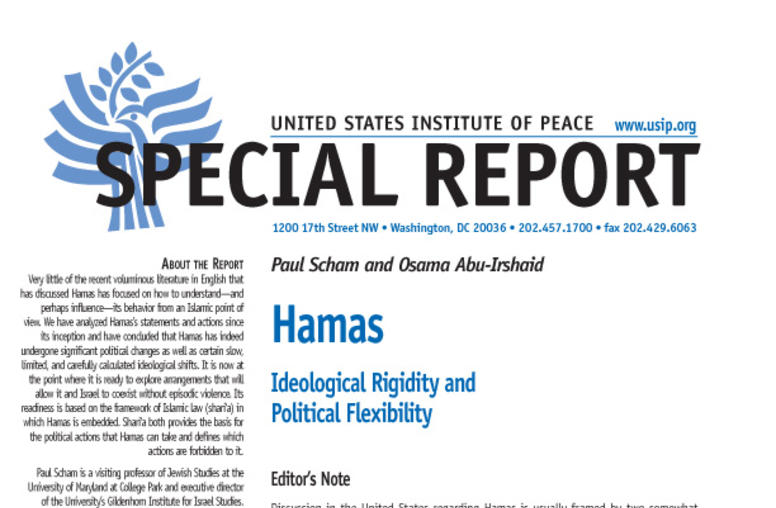
Hamas: Ideological Rigidity and Political Flexibility
Hamas's landslide victory in the Palestinian parliamentary elections of January 2006 came as an unwelcome and unexpected shock to both Middle Eastern and international regimes, with the organization winning nearly 58 percent of the Palestinian Legislative Council seats. The United States, a number of European nations, and Israel had all issued clear warnings before the elections that they would not deal with a Palestinian Authority led by Hamas.
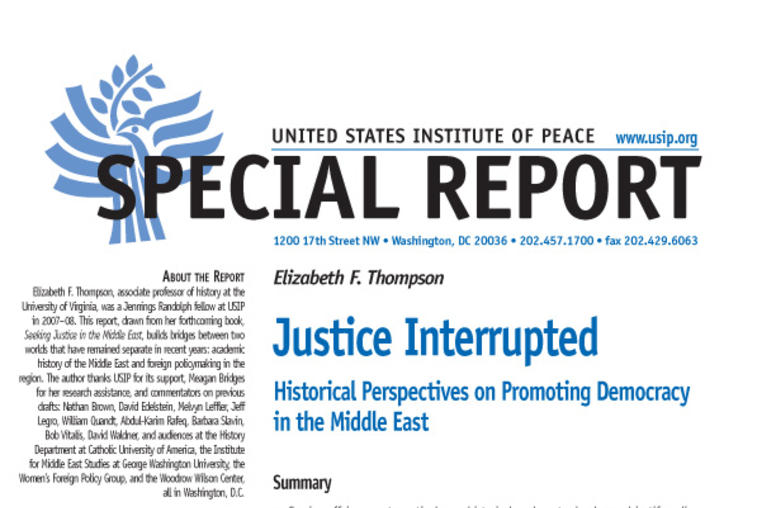
Justice Interrupted: Historical Perspectives on Promoting Democracy in the Middle East
Summary Foreign affairs experts routinely use historical analogy to develop and justify policy. However, as professional historians have long noted, attractive analogies often lead to bad policies. Officials regularly choose analogies that neglect or distort the historical case they aim to illuminate. Nonetheless, history can be used effectively in international relations To do so, practitioners must first recognize the difference between historical analogy and precedent. Historical p...
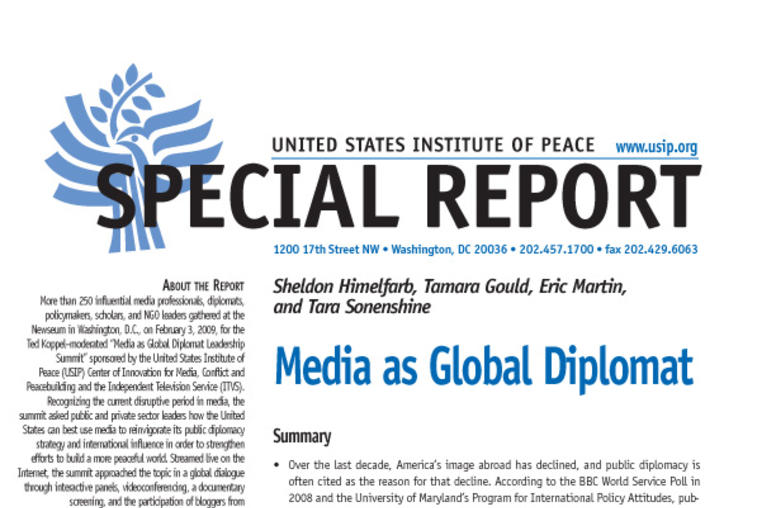
Media as Global Diplomat
It would be tempting to pronounce American public diplomacy dead in the 21st century. Where government once served as a powerful middleman for information and access, shaping prevailing messages about the United States, now the Internet connects two billion people directly. The result is a brave new world for multilateral international communication, with unprecedented power to connect and divide, spread truth and rumor, and organize dispersed individuals for good, evil, and everything in be...
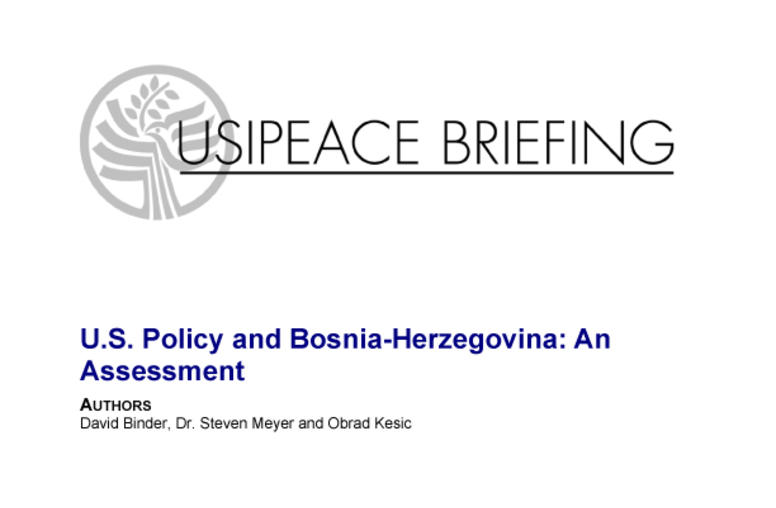
U.S. Policy and Bosnia-Herzegovina: An Assessment
This is the final of three papers USIP will publish on Bosnia-Herzegovina, each with a different analytical perspective on what is happening in Bosnia and what needs to be done there to prevent a return to violence. We hope that these papers will generate a debate on options that might be pursued by the U.S. government (USG), Europe and Bosnians. These papers will be discussed at a public forum at the United States Institute of Peace on June 25, 2009.
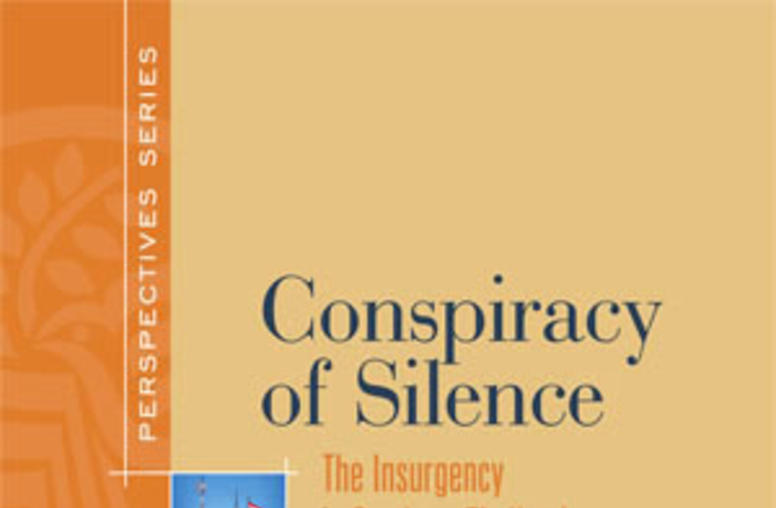
Conspiracy of Silence
In this eye-opening volume, the author examines the roots of the current southern Thai conflict, gives a detailed overview of the present crisis, documents the flight of the south's Buddhist community, and argues that the Thai government has woefully misplayed its hand.
On the Issues: North Korea
One day after North Korea’s nuclear test drew widespread condemnation, the country on May 26th test-launched two more short-range missiles. This marks Pyongyang's second nuclear test, after its first in October 2006. Amid rising tensions on the Korean peninsula, South Korea joined the Proliferation Security Initiative, a U.S. initiative to curb the trade of weapons of mass destruction, an action North has called a declaration of war.
The Real Bridge to Nowhere: China's Foiled North Korea Policy
This report examines the complexities of Chinese-North Korean relations, taking into account the perspective of China's border areas, a vital aspect of China's relationship with the Korean peninsula that is often overlooked.
North Korea, Inc.: Gaining Insights into North Korean Regime Stability from Recent Commercial Activities
By examining how North Korea, Inc. — the web of state trading companies affiliated to the Korean Workers’ Party, the Korean People’s Army, and the Cabinet — operates, this report highlights a new framework for gauging regime stability in North Korea.
Assessing Conflict Transformation and Stabilization
USIP is helping develop metrics for measuring progress in reconstruction and stabilization operations. This effort is a partnership between USIP, the U.S. State Department (Office of the Coordinator for Reconstruction and Stabilization), the Fund for Peace, the U.S. Army’s Peacekeeping and Stability Operations Institute, and US Army Corps of Engineers.